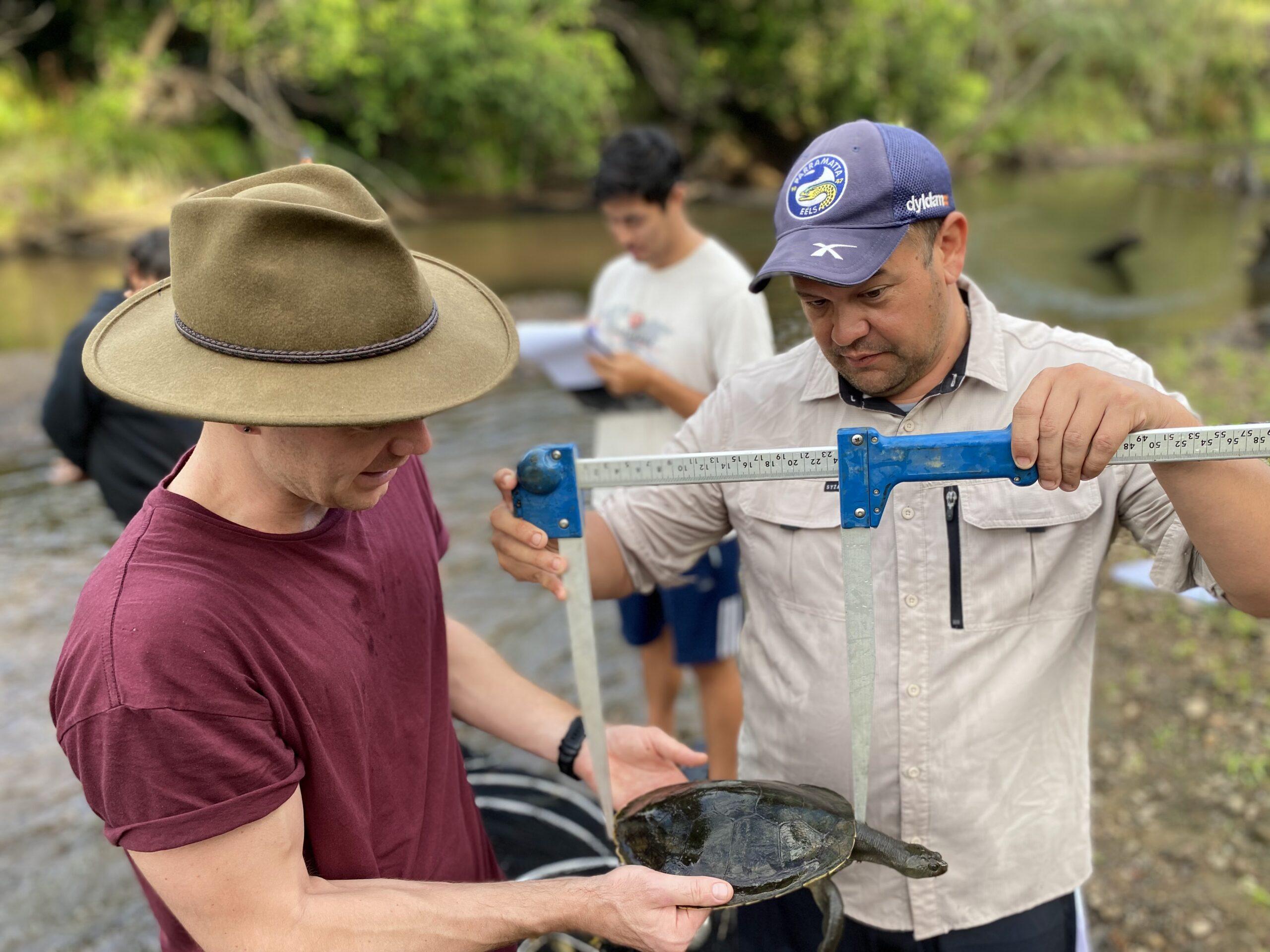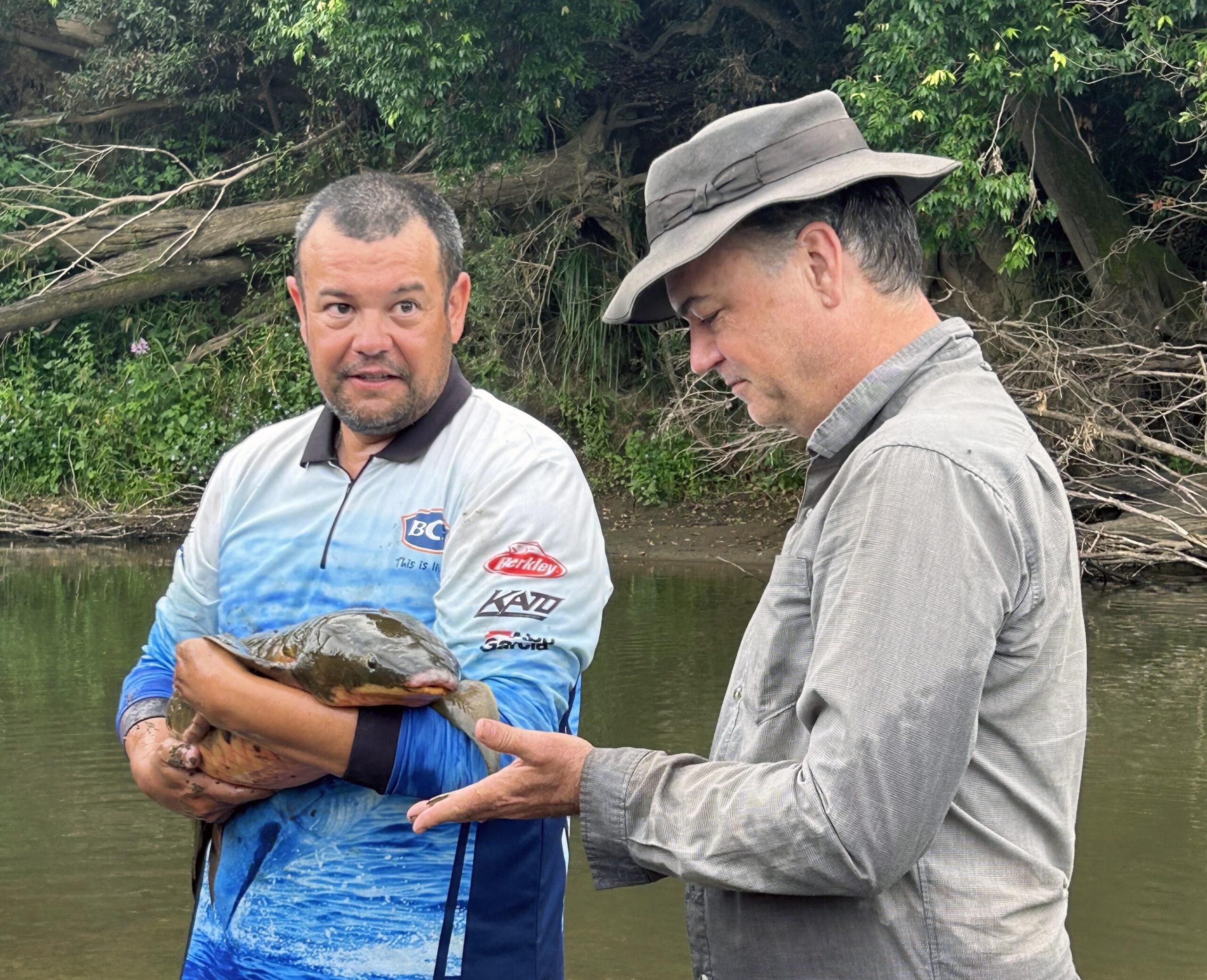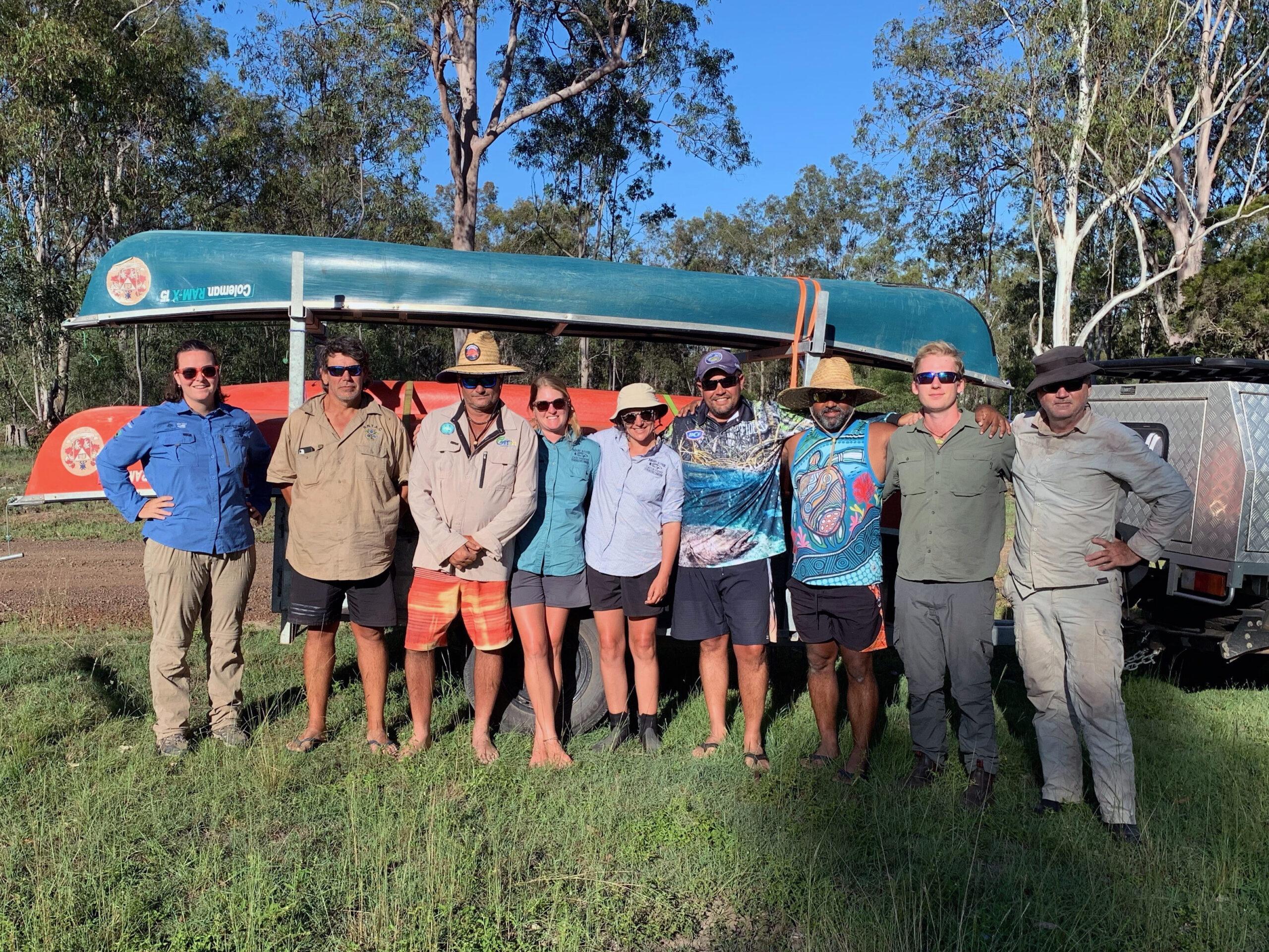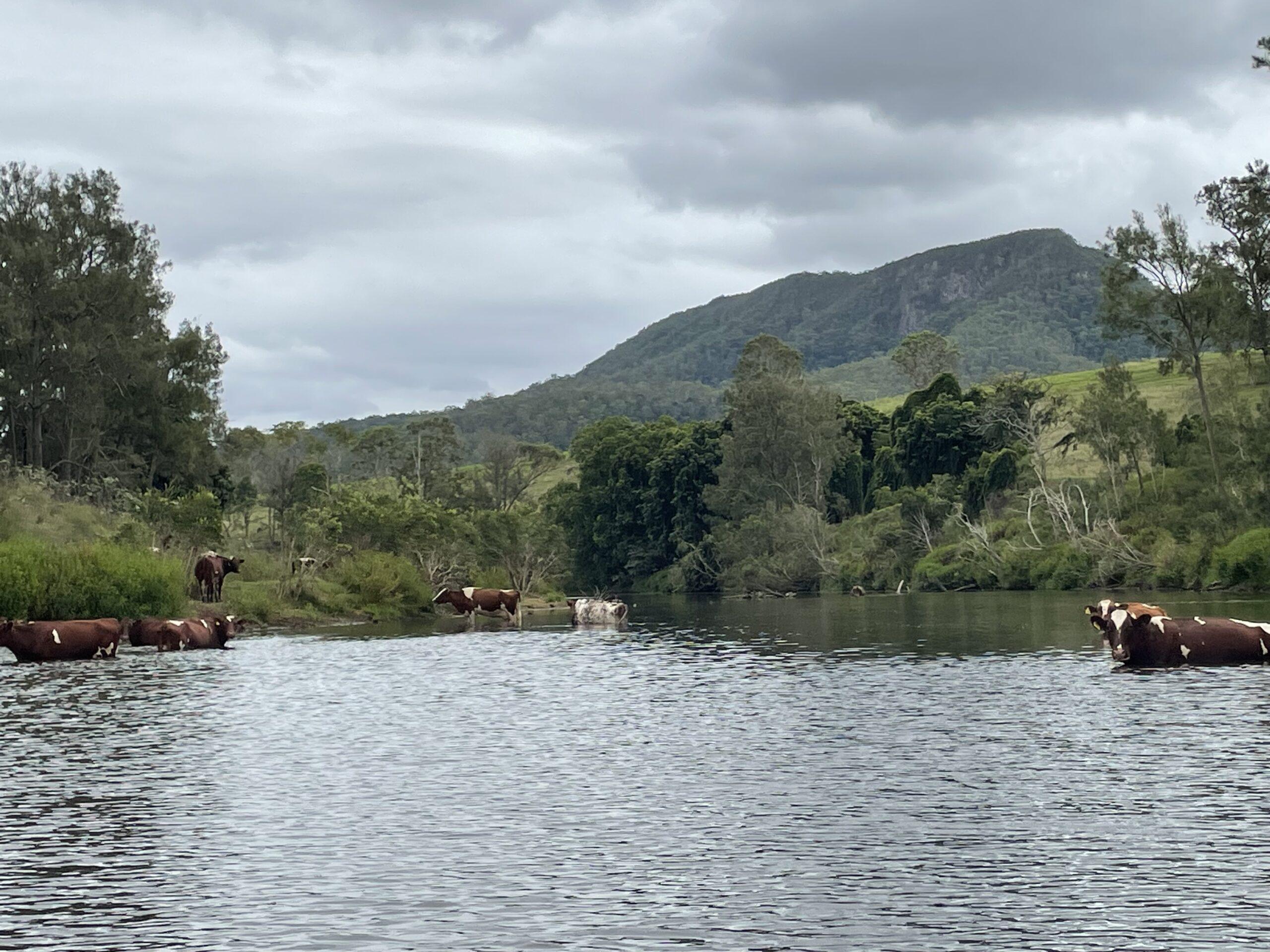21 April 2023
With $550,000 funding over 3 years from the Resilient Landscapes Hub of the Australian Government’s National Environmental Science Program, the research will help ensure that river restoration in the Mary is targeted to benefit threatened species.
Queensland’s Mary River catchment is a hotspot for threatened species that rely on freshwater and riparian habitats. These include species like the evolutionarily significant Australian lungfish and the Mary River turtle, which can only be found in this river system.
– Professor Mark Kennard, Griffith University, project leader

Luke Carpenter-Bundhoo from Griffith University and Tom Espinoza from the Burnett Mary Regional Group with a threatened Mary River turtle, found only in this river system. Photo: Matthew Taylor.
Floods, fire, habitat loss and invasive species have put these animals in further jeopardy, but this new Griffith University research project aims to deliver the science to support on-ground management and recovery of these threatened freshwater species in the Mary.
Our project will fill critical knowledge gaps on where these animals are, the status of their populations, their ecological and cultural values and the threats they face.
– Professor Kennard
The project team will carry out field sampling of fish, turtles, frogs and other species, map their critical habitats and identify areas in need of restoration.
Our recent canoe survey along 200 km of the Mary River revealed that some areas are still in very good condition and likely support healthy populations of these species, but other parts of the river are severely degraded and in urgent need of repair. The information we gather will be used to prioritise on-ground restoration actions to benefit multiple threatened species and their habitats.
– Professor Kennard
The research approach used in the study of the Mary River and the knowledge gained will be transferable to other ecosystems across Australia.
Crucially, the Mary River catchment is also home to passionate people involved in strong local organisations who want to save threatened species and achieve a resilient, sustainable and productive catchment. We’re looking forward to working closely with the Burnett Mary Regional Group, other catchment management groups, Traditional Owners, government and landholders. Our shared goal is to improve knowledge, capacity and the tools needed for the management and recovery of threatened freshwater species and their critical habitats in Moonaboola.
– Professor Kennard
Launching canoes on the Mary River expedition. Video: Matthew Taylor.

Tom Espinoza from the Burnett Mary Regional Group and project leader Mark Kennard from Griffith University with an Australian lungfish, a threatened species found only in south-east Queensland. Photo: Cait Mill.

The Mary River expedition team. Photo: Burnett Mary Regional Group.

Unfenced stock can degrade riverine ecosystems. Photo: Mark Kennard.
Banner image: The threatened Mary River turtle. Photo: Cait Mill.
Want to know more about the Resilient Landscapes Hub's activities and our research into practical solutions to environmental problems? Stay informed about activities, research, publications, events and more through the Hub newsletter.
"*" indicates required fields